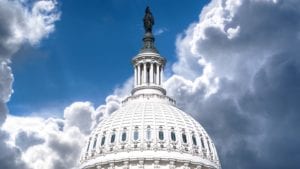“The two contradictory appeals court decisions that cast the future of Obamacare into uncertainty Tuesday morning largely center on a question of intent: When the Affordable Care Act was conceived and drafted, did its creators mean to withhold health care subsidies from people living in states that refused to set up their own exchanges?.
This latest legal challenge focuses on four words in the mammoth law authorizing tax credits for individuals who buy insurance through exchanges “established by the States.” Thiry-six states declined to set up their own exchanges — far more than the law’s backers anticipated — and in those states, consumers have been shopping for health care on exchanges run instead by the federal government. Now the D.C. Circuit Court of Appeals has ruled that these consumers are not eligible for subsidies because, well, they bought their insurance on exchanges not “established by the States.”
This is a tremendously literal interpretation of a small but crucial part of the law, and it’s one that was arguably never intended by its creators. The plaintiffs in these challenges have argued that the ACA always meant to exclude noncooperative states from subsidies as a way of incentivizing those states to create their own exchanges. Supporters of the law — including the Obama Administration — counter that such intent would never have made any sense in the larger context of a law aiming to expand health insurance to as many people as possible.”
Here’s What Obamacare’s Authors said They Actually Meant
You are here:
- Home
- Affordability
- Here’s What Obamacare’s Authors said They Actually Meant






